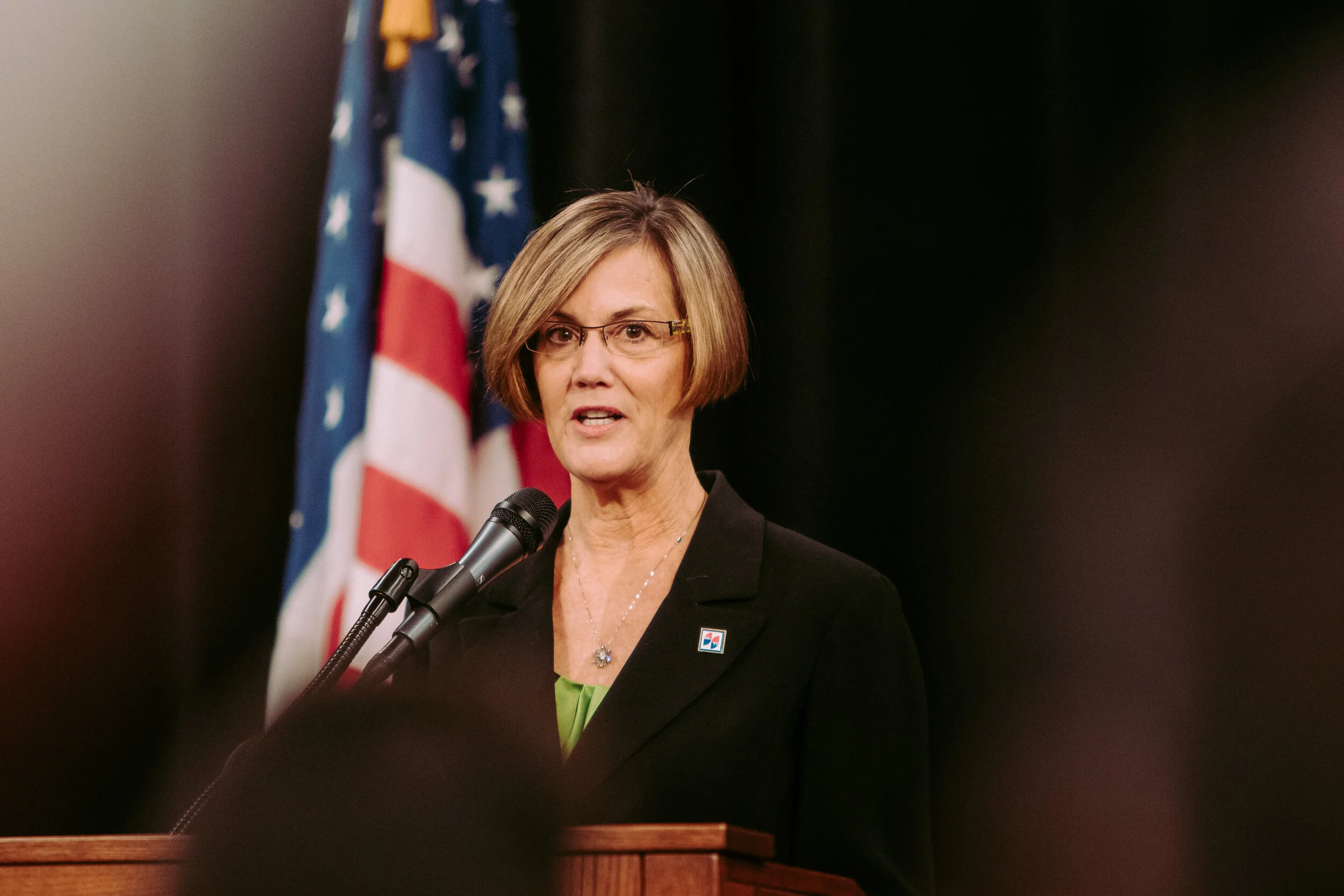Rochester's police oversight commission launches review of RPD policies
After nearly six months between meetings — due to vacant seats and low turnout — Rochester’s Police Policy Oversight Commission convened an emergency conference on Tuesday, prompted by Mayor Kim Norton.
The meeting was called as cities across the country begin to overhaul police policies, or even go farther: in Minneapolis, the city council has pledged to disband its police force. In Rochester, no such proposals have been brought forward. Instead, the city is leaning on the police commission to decide the types of reform they want to pursue.
Tuesday’s meeting, held electronically, laid the groundwork for a long-term reform process, while also bringing immediate change to one department policy and making changes imminent for three more. We went into the meeting with four main questions — here’s what we learned.
What is the commission being tasked with?
The mayor asked the commission to take a closer look at three specific policies — use of force (300), handcuffing and restraint (302), and standards of conduct (320), through the lens of the four steps outlined by former President Barack Obama’s pledge that Norton signed onto last week: review, engage, report, and reform.
The commission will be tasked with reviewing those policies, compiling feedback from the public, and recommending potential changes for the police department to adopt. Mayor Norton asked the commission to have recommendations ready on all three policies — with priority given to use of force policy — within 30 days.
While Norton acknowledged the 30-day timeline will be a tall order, the commission did approve the timeline and said the final recommendations will be done by then. The mayor said the commission’s willingness to accept the challenge shows what the body is capable of accomplishing — even with a depleted roster and little time.
“The hope of this committee was to do exactly what we’re talking about right now,” said Norton. “You have been doing some of it, but I’m asking you to beef up that timeline and move ahead.”
Will any immediate changes be made?
It was not on the original agenda, but one small change was enacted by RPD Chief Jim Franklin. Following a lengthy discussion on the use of ‘carotid control,’ a form of neck restraint designed to cut off blood circulation to the brain and render the subject unconscious, Chief Franklin said he would classify the restraint as ‘deadly force,’ effective immediately.
During the conversation on neck restraints, some commission members supported the idea of taking the move out of RPD’s policy book. Commission member and president of the Rochester branch of the NAACP W.C. Jordan noted the public and traumatic killings of two black men came after they were handcuffed and under a neck restraint, a combination of factors he never wants to see in Rochester.
“We saw it with Eric Garner and with George Floyd, where the men were already handcuffed, already restrained,” said Jordan. “Those kinds of neck restraints should be banned, if someone’s already restrained by handcuffs.”
RPD’s neck restraint guidelines are included in its use of force policy, so the commission may recommend broader changes when they present their findings next month. The decision on whether or not to permanently remove neck restraints as an authorized use of force, according to the chief, will be left up to the commission to decide.
“I will be looking for a formal recommendation from this group, in reference to the neck restraints,” said Franklin. “There could be one of two recommendations: a complete ban of it, or authorizations only under a deadly force situation. I’ll be looking for that type of recommendation from you.”
How can the commission bring about reform?
Moving forward, a sub-group will dive into the three policies mentioned by Mayor Norton. The group will then take their recommendations to a group of community members, organized by commission member Rebeca Sedarski, before revealing its final recommendations.
Whether or not the commission can or should formulate new policies, though, was contested by commission member Lawrence Collins, who said the commission’s role is strictly to interpret and recommend changes based on actions initiated by the police department — not the commission itself.
“What we are is a police policy oversight commission. We’re not a policymaking commission,” said Collins. “My comments have been intended to be in the context of the expectation that we'll be having some discussions that will result in us making recommendations. I don’t think we need to go to the next step and be formulating that policy.”
The prevailing sentiment from most commission members was to meet again and discuss their opinions together, after some time to familiarize themselves with the specific policies.
“I know it would be easy if we just read it and provided our individual input, but I think we would come to a better outcome if we could all discuss it,” said acting chairperson Abdi Roble.
After re-evaluating those three policies, what comes next?
In short, there will be a complete review and overhaul of the department’s 720-page policy book, which Mayor Norton says could take months. The election of a chairperson will also take place at the next meeting, tentatively set for July 13. (The city’s online meeting portal does not list an upcoming meeting for the commission, but the police department’s website says the commission normally meets on the second Monday of every month.)
The Olmsted County Human Rights Commission also noted plans to fill its vacant seat soon, guaranteeing the growth of a police commission suddenly in the spotlight after months of struggling to come up with enough members to formally hold a meeting.
Isaac Jahns is a Rochester native and a 2019 graduate of the Missouri School of Journalism. He reports on politics, business and music for Med City Beat.
Cover photo: A protester holds up a photo of George Floyd during a protest in Rochester on Saturday / William Forsman








